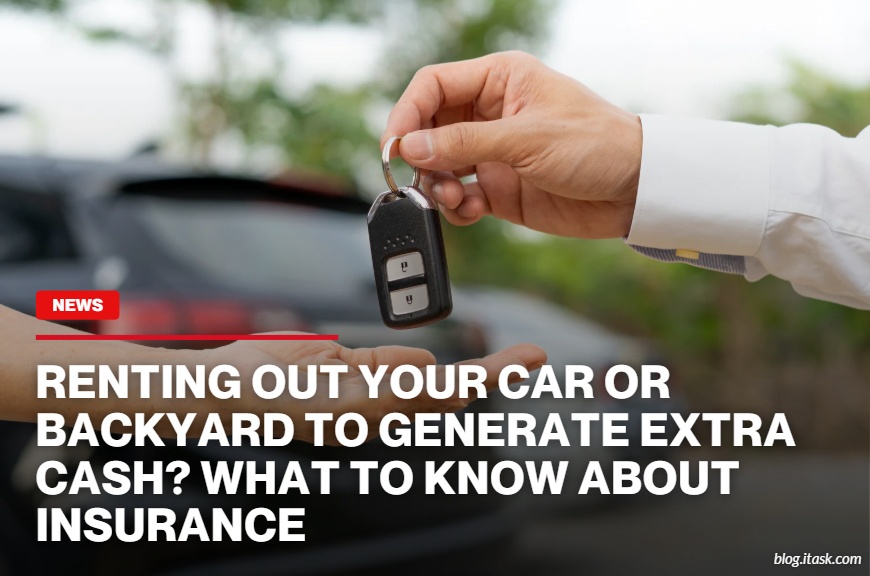Renting out your car or backyard can seem like a smart way to make a little extra money
Renting out your car or backyard can seem like a smart way to make a little extra money

Renting out your car or backyard can seem like a smart way to make a little extra money. With the rise of sharing platforms, it’s easier than ever to list what you own when you aren’t using it. But before you start renting, you must ask: is my insurance ready for this? Without the right protection, that extra income could lead to big, unexpected costs.
If someone rents your backyard for a party or photoshoot, and there’s an injury or property damage, your regular home insurance might not cover it. You’ll likely need an event liability policy in your renter’s name—and you must tell your insurer what you’re doing to avoid surprises. The same caution applies if you're sharing your car—personal insurance often stops short when you use your vehicle like a business.
When renting out your car, your standard auto policy may not help if there's a crash. Some policies might cover rentals but only if you’ve added specific riders or paid for extra protection. Without the right coverage, you could pay for damage, liability, and even loss of use—all on your own. It pays to talk to your insurer before saying “yes” to renting.
Many insurance providers warn that leisure rentals—like a weekend rental for fun—often need special add-ons to your policy. If you don’t have that, you may need to buy coverage from the rental platform or ask renters to provide their own. That might cost more up front, but it safeguards you—and that often means peace of mind.
These rental options are part of a bigger shift in how people earn money. Platforms now make it easy to rent out nearly anything—from yards to cars to boats—just like hosting on Airbnb. While it opens up new ways to earn, it also brings risks—especially when accidents happen. Insurance for regular owners simply wasn’t built for these situations.
In the end, making money from renting out your car or backyard can work—but only if you plan ahead. Always talk with your home or car insurance provider to learn what is and isn’t covered. If needed, get extra protection or ask your renter to get it. That way, the extra cash won’t turn into unexpected trouble.
